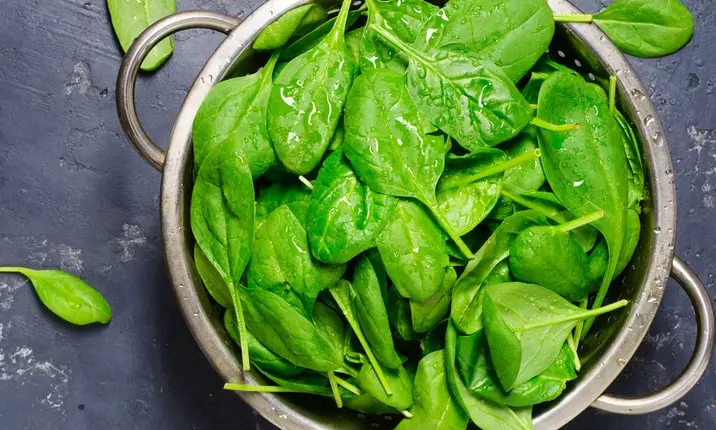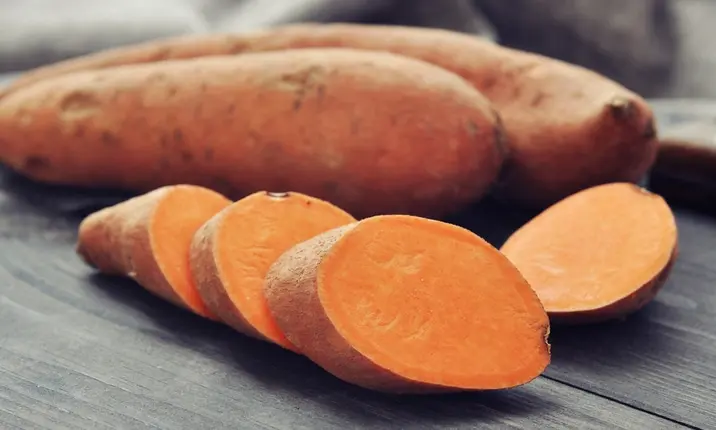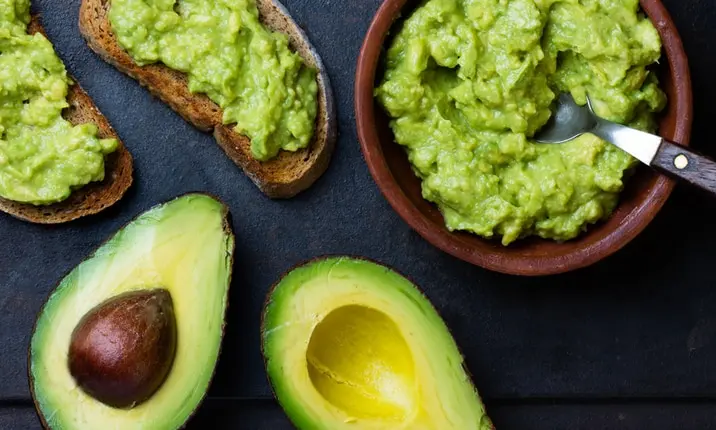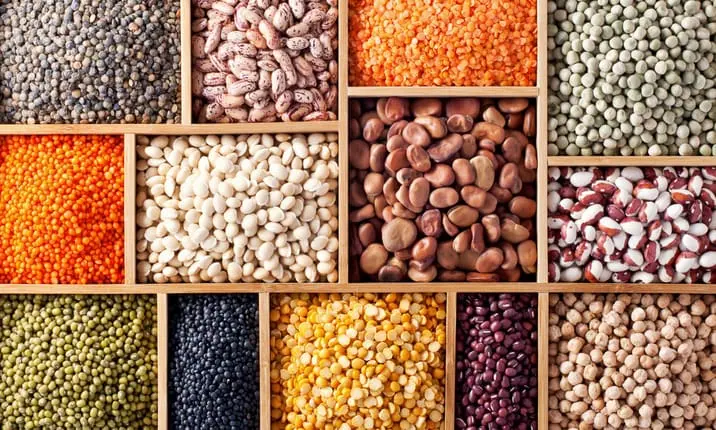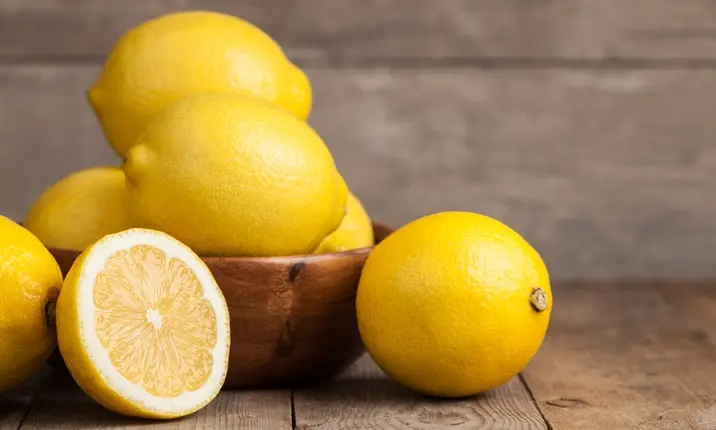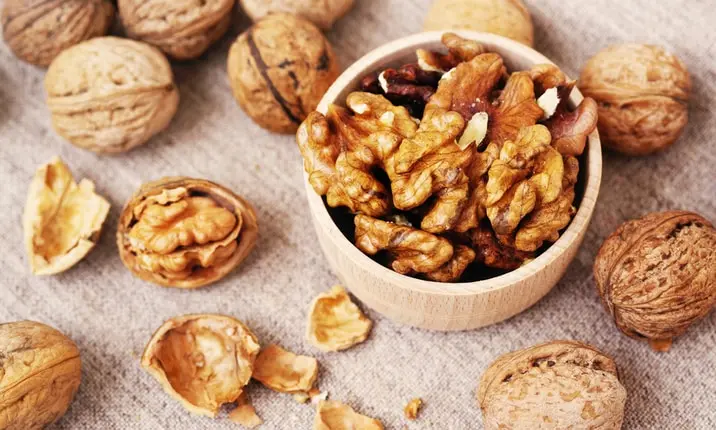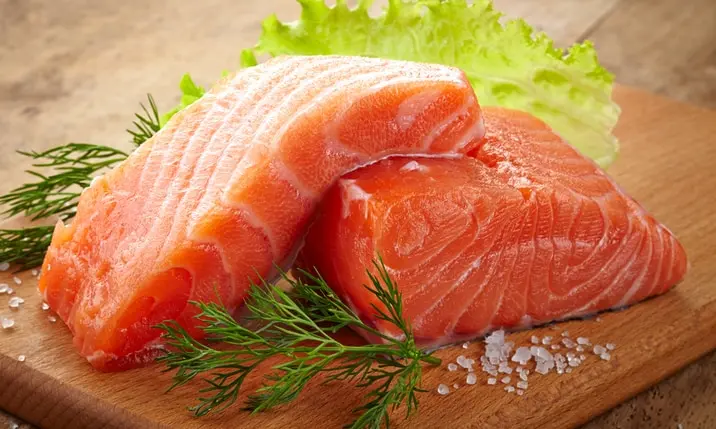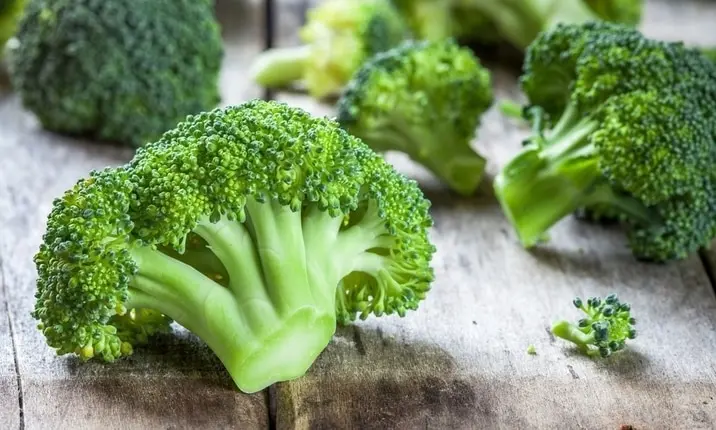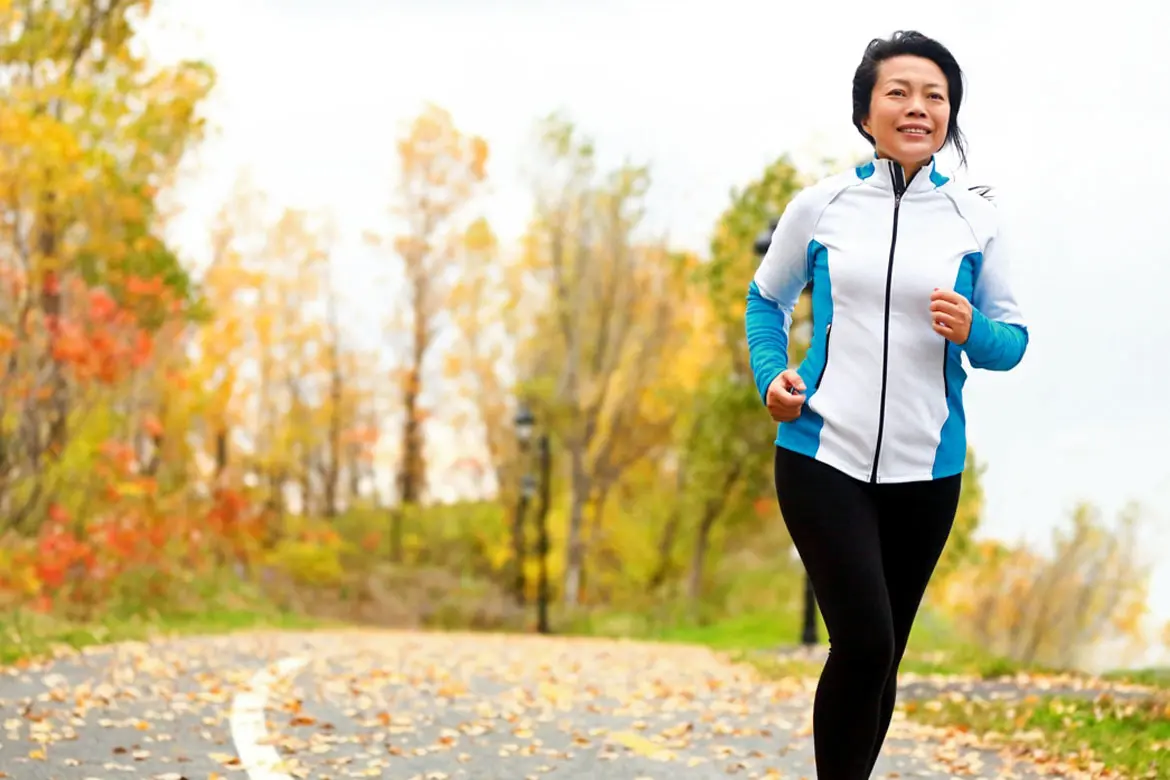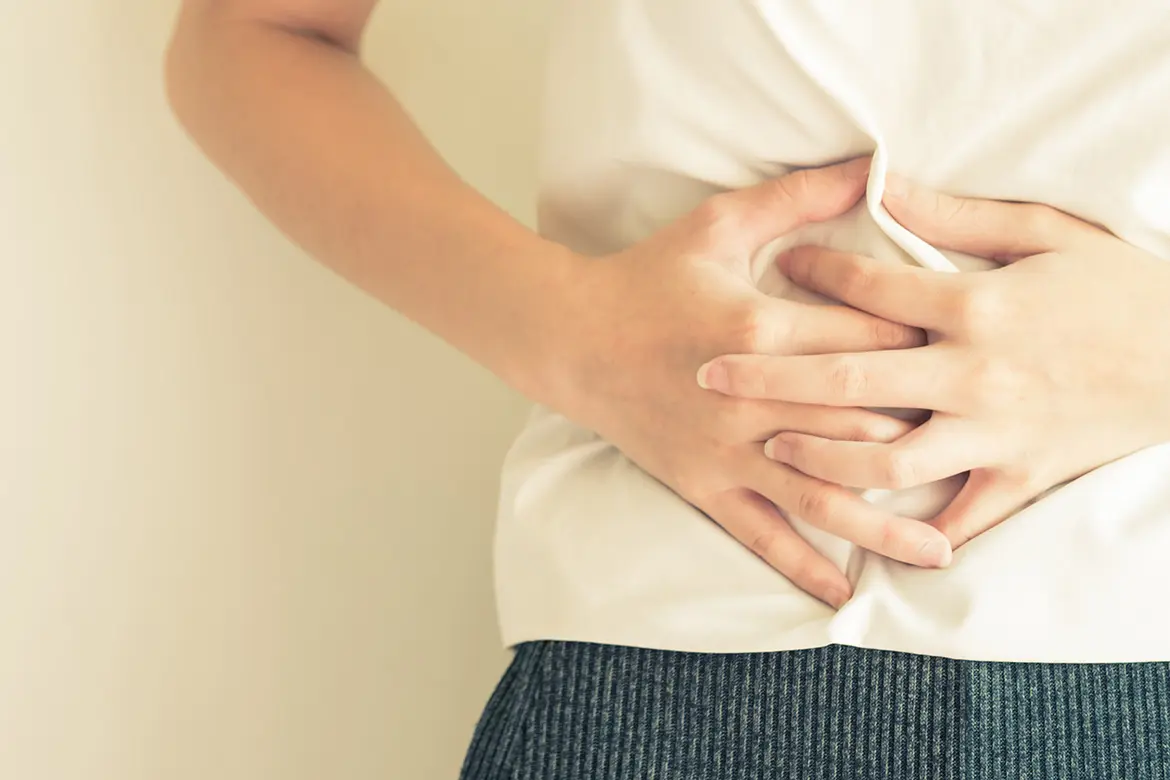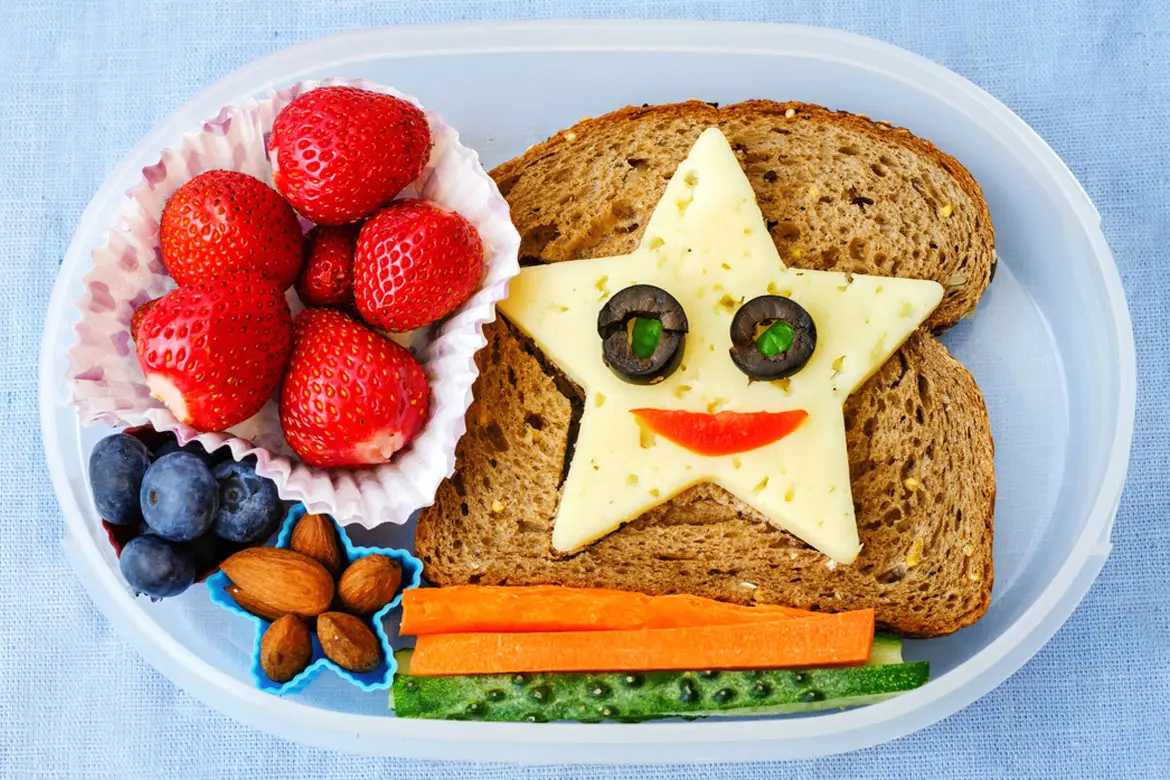
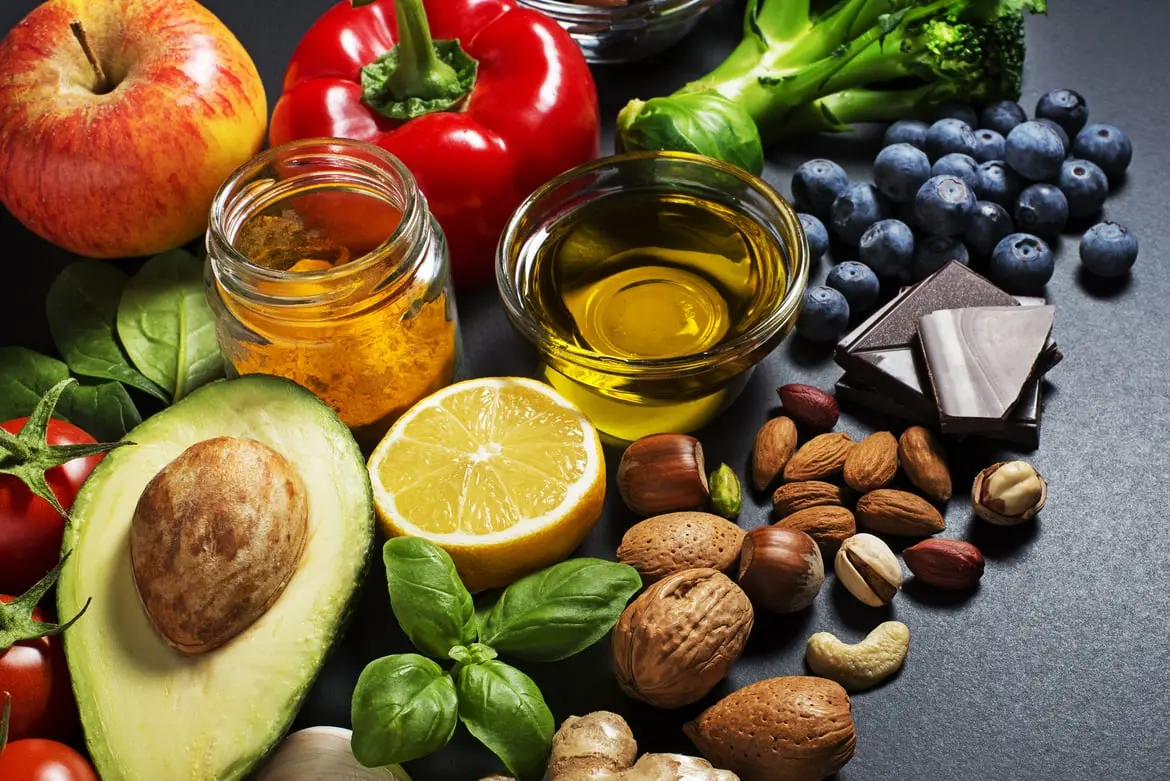
Source: Shutterstock
8 Choice Foods from Nature
Last updated: Thursday, January 28, 2021 | 9 min reading time
In celebration of Earth Day, discover the benefits of these 8 healthy foods from nature, and find out how you can add them to your diet!
Healthy food #1: Spinach
Health benefits of spinach
A leafy green vegetable that is packed with vitamins and minerals such as vitamin A, vitamin C, iron and calcium and potassium, spinach is thought to help improve eye health. It is rich in iron, and is also full of fibre, which is great for your digestive system.
Calories in 100g of spinach
There are only 23 calories in 100g of raw spinach – that's the lowest calorie choice in this whole list.
Nutritional value of spinach
Here are just some of the naturally occurring vitamins, minerals and disease-busting plant compounds found in spinach:
- Vitamin C, which helps improve immune functions
- Vitamin K1, which helps your blood to clot properly
- Folic acid, which is essential for tissue growth
- Iron, which helps your body produce healthy, oxygen-rich red blood cells for energy, and promotes healthy cells, skin, hair and nails
- Calcium, which promotes strong bones
- Lutein, which is associated with excellent eye health
How to incorporate spinach into a healthy diet
That's easy, because you can eat spinach cooked or raw! Raw spinach is higher in vitamin C and potassium, but boiling it or steaming it will make it even easier to digest, and will unlock a higher level of iron content. So, why not mix it up and have it both ways? Grab a handful to add to your salad, or steam it with all your other veggies.
Healthy food #2: Sweet potatoes
Health benefits of sweet potatoes
Sweet potatoes are loaded with vitamins, minerals and antioxidants. Early research suggests the latter might help to keep certain cancers at bay. Because they are fairly fibrous, they are good for your digestive health, and can make you feel fuller for longer.
Calories in 100g of sweet potatoes
There are only around 86 calories per 100g of raw sweet potatoes.
Nutritional value of sweet potatoes
Sweet potatoes are higher in fibre than regular potatoes. And, while both contain vitamin C, sweet potatoes are also a rich source of vitamin A, which makes them the healthier choice out of the two.
Here are some of the important vitamins and minerals found in sweet potatoes:
- Vitamin C, to help keep your immune system healthy, enhance absorption of iron and prevent scurvy
- Vitamin A, a powerful antioxidant that is important for eye health
- Vitamin E, another powerful antioxidant that helps to fight free radicals that damage cells
- Vitamin B5 and B6 which the body needs to convert food into energy
- Potassium, to help control blood pressure and maintain heart health
- Manganese, which helps with growth, development and metabolism
How to incorporate sweet potatoes into a healthy diet
Don't just reach for the sweet potato fries. There are lots of other (healthier) ways to incorporate sweet potato into your diet. You can bake them, mash them or roast them, use them in a soup or casserole, or make sweet potato noodles. Mmm!
Healthy food #3: Avocados
Health benefits of avocados
It might be considered trendy to eat avocados these days, but that's not the only reason to reach for this one-of-a-kind fruit! Whereas other fruits are high in carbs, avocado is high in healthy fats. There are a bunch of different types of avocado, but the one you would probably recognise is the Hass avocado – it's shaped a bit like a pear, with dark green skin and yellow-green flesh, and it's packed full of nutrients and fibre.
Calories in 100g of avocados
There are 160 calories in 100g of avocado, but 84% of those come from healthy fats.
Nutritional value of avocados
Avocado (100g) contains 26% of your recommended daily allowance (RDA) of vitamin K, 20% of your RDA for folic acid, and 17% of your RDA for vitamin C, plus:
- Vitamin E, which promotes good skin health and proper immune system function
- Potassium, which is linked to reduced blood pressure
- Vitamin B5, which helps to maintain a healthy digestive system
- Vitamin B6, which helps to maintain a healthy nervous system
- Heart-healthy monounsaturated fat (oleic acid)
How to incorporate avocados into a healthy diet
Luckily, avocados are tasty as well as nutritious, and there are plenty of ways to incorporate its goodness into your diet! Scoop the creamy mash out with a spoon and add it to your salad, mash it on toast, make homemade guacamole, bake it with an egg, mix it with rice… the options are endless.
Healthy food #4: Beans
Health benefits of beans
Ever heard the song 'beans, beans, good for your heart…'? Well, it's true! Eating plenty of beans can help to lower cholesterol and blood pressure, and reduce your risk of developing heart disease. They are also an important source of fibre, which aids in a healthy digestive system, and protein, which helps to boost metabolism and build muscle mass and strength.
Some common types of beans are chickpeas, lentils, peas, kidney beans and black beans, which also supply important vitamins and minerals such as folate (vitamin B9), manganese, copper and thiamine.
Calories in 100g of beans
This depends entirely on the beans you eat. With Chinese long beans, you're looking at around 50 calories per 100g. Chickpeas, kidney beans, black beans and pinto beans are higher at over 120 calories per 100g. Baked beans are somewhere in the middle at around 95 calories per 100g.
Nutritional value of beans
Again, this depends on the beans you eat, but 100g of kidney beans, for example, contain 25% of your RDA for fibre, which is great for your digestive system and may help with weight loss. Here's what else you'll gain from kidney beans:
- Protein, which stabilises blood sugar levels when it is consumed with carbohydrate foods, and supports healthy bones, muscles and skin
- Iron, which helps your body produce healthy, oxygen-rich red blood cells for energy, and promotes healthy cells, skin, hair and nails
- Magnesium, which is linked to reduced blood pressure and a lower risk of depression
- Vitamin B6, which helps to maintain a healthy nervous system
How to incorporate beans into a healthy diet
Beans are fairly inexpensive, which means picking up a tin or pack of them won't break the bank. Cook them in your stir fry, simmer them in your soup, throw them on your salad, or use them to make your favourite black bean sauce!
Healthy food #5: Lemons
Health benefits of lemons
Who knew the humble lemon was one of the healthier foods on Earth? High in vitamin C, lemon is great for your immune system. A small portion of lemon juice every day may help to prevent the development of kidney stones, as it increases urine volume and urinary citrate. Some research even suggests lemons have anti-cancer properties.
Calories in 100g of lemons
There are around 30 calories per 100g – not that you're likely to eat 100g of lemon in one go!
Nutritional value of lemons
Lemons don't just have their own health benefits – they also help your body to absorb the nutrients (like iron) from other food sources! One study found that citrus enhances the body's ability to absorb antioxidants by up to 80%.
And it's not just citric acid that's good for you – one lemon contains over 100% of your RDA for vitamin C.
Here are some of the nutrients you can get from lemons:
- Vitamin C to support a healthy immune system, the formation of collagen and absorption of iron
- Vitamin B6 which plays a role in converting food into energy
- Antioxidants such as flavonoids which fight free radicals and may have protective benefits against cancer and heart disease
- Citric acid which may help prevent the formation of kidney stones
- Potassium to help lower blood pressure and support heart health
How to incorporate lemons into a healthy diet
OK, so you're not going to sit and eat a whole lemon – that would be weird. But there are some simple ways you can incorporate this heart-healthy fruit into your diet! Add several slices or some freshly squeezed juice to your favourite tea, mix it into salad dressings, freeze the juice into ice cubes to add to drinks, or squeeze it over your chicken or fish.
Healthy food #6: Walnuts
Health benefits of walnuts
Eating walnuts regularly is thought to improve your brain health, as well as help to stave off heart disease and cancer. If that's not a good enough reason to grab a handful, they are also a great source of several essential vitamins and minerals.
Calories in 100g of walnuts
There are 654 calories in 100g. Most of these calories come from the high fat content.
Nutritional value of walnuts
OK, so walnuts are high in fat, but up to 14% of this is a healthy omega-3 fatty acid. This is thought to be good for your heart, as it helps to reduce inflammation and improve the composition of fat in your blood. Walnuts also contain:
- Copper, which promotes heart health and a healthy immune system
- Folic acid, which is essential for tissue growth
- Phosphorus and manganese, which help to maintain strong bones
- Vitamin B6, which helps to maintain a healthy nervous system
How to incorporate walnuts into a healthy diet
Walnuts make a great snack or quick topping for your cereal, salad, soup or pasta. Like anything else, they should be eaten in moderation (30g, which is about a handful), especially because of their high fat content.
Healthy food #7: Salmon
Health benefits of salmon
Salmon is a great source of protein. Protein helps your body to heal quicker after injury, protecting your bones, and building strong muscles, skin, hair and nails, it's an essential nutrient in your diet. And that's where salmon comes in. Not only is it packed with protein, it's also rich in omega-3 fatty acids.
Calories in 100g of salmon
There are around 208 calories in 100g of salmon.
Nutritional value of salmon
B vitamins! A 100g serving combines 51% of your RDA for vitamin B12, 50% of your RDA for vitamin B3, 47% of your RDA for vitamin B6 and more, which can help your body to generate more energy, repair DNA, and maintain optimal functioning of the brain and nervous system.
Salmon also contains:
- Omega-3 fatty acids, for heart health
- Astaxanthin, an antioxidant which helps reduce 'bad' LDL and increase 'good' HDL
- Selenium, to help maintain healthy thyroid function and protect bone health
- Polyunsaturated fatty acids, which are linked to reduced risk for cognitive disorders and dementia
- Protein to help maintain bone and muscle mass
- B vitamins which are important for many functions ranging from converting food into energy and maintaining nerve health to repairing DNA and reducing inflammation
- Potassium to help regulate blood pressure and reduce the risk for stroke
How to incorporate salmon into a healthy diet
Consuming a couple of servings a week should be enough. And you can mix up how you eat it! Whether you steam it, bake it, grill it, or just pop it out of a can, there are plenty of ways to get more salmon into your diet.
Healthy food #8: Broccoli
Health benefits of broccoli
You probably know that dark green, leafy vegetables are good for you. But did you know that the unique plant-based compounds in broccoli are thought to help reduce the risk of several cancers, including lung, pancreatic, breast and prostate cancer?
Calories in 100g of broccoli
There are only around 34 calories per 100g of raw broccoli.
Nutritional value of broccoli
Raw broccoli is almost 90% water, with 7% carbs and 3% protein. That means it contains almost no fat! It's also a good source of fibre and packed with vitamins and minerals, including:
- Vitamin C, to support a healthy immune system and collagen production
- Lutein and zeaxanthin, antioxidants which help to protect eye health
- Calcium for strong bones and teeth
- Sulforaphane, an antioxidant which helps reduce inflammation and improve blood sugar control in people with diabetes
- Potassium, which helps to relax blood vessels and reduces the risk of high blood pressure
- Vitamin K1 which plays an important role in blood clotting
- Folate or vitamin B9 to support normal tissue growth and cell function
- Iron to support the transport of oxygen in red blood cells and prevent anaemia
This makes broccoli a healthy source of many of the body's essential nutrients.
How to incorporate broccoli into a healthy diet
Just one cup of raw broccoli is about 2.3g of fibre, which is up to 10% of your daily intake. Gentle steaming is thought to release the most health benefits, so mix it in with your rice or other veggies for a hearty, healthy meal.
Arnarson, A. (2015, July 18). Walnuts 101: Nutrition Facts & Health Benefits. Retrieved January 31, 2017, from https://www.healthline.com/nutrition/foods/walnuts
Bjarnadottir, A. (2015, February 26). Broccoli 101: Nutrition Facts & Health Benefits. Retrieved January 31, 2017, from https://www.healthline.com/nutrition/foods/broccoli
Bjarnadottir, A. (2015, April 6). Sweet Potatoes 101: Nutrition Facts & Health Benefits. Retrieved January 31, 2017, from https://www.healthline.com/nutrition/foods/sweet-potatoes
Glass, E. (2013, September 4). The 6 Healthiest Ways to Eat Spinach. Retrieved January 31, 2017, from http://www.onegreenplanet.org/vegan-food/the-6-healthiest-ways-to-eat-spinach/
Gunnars, K. (2015, October 3). Spinach 101: Nutrition Facts & Health Benefits. Retrieved January 31, 2017, from https://www.healthline.com/nutrition/foods/spinach
Gunnars, K. (2016, March 12). Beans 101: Cheap, Nutritious & Super Healthy. Retrieved January 31, 2017, from https://www.healthline.com/nutrition/beans-101
Spritzler, F. (2016, December 20). 11 Impressive Health Benefits of Salmon. Retrieved January 31, 2017, from https://www.healthline.com/nutrition/11-benefits-of-salmon
The 10 Healthiest Foods on the Planet. (n.d.). Retrieved January 31, 2017, from https://www.fitnessmagazine.com/recipes/healthy-eating/superfoods/the-10-healthiest-foods-on-the-planet/?page=4
Bjarnadottir, A. (2015, February 26). Broccoli 101: Nutrition Facts & Health Benefits. Retrieved January 31, 2017, from https://www.healthline.com/nutrition/foods/broccoli
Bjarnadottir, A. (2015, April 6). Sweet Potatoes 101: Nutrition Facts & Health Benefits. Retrieved January 31, 2017, from https://www.healthline.com/nutrition/foods/sweet-potatoes
Glass, E. (2013, September 4). The 6 Healthiest Ways to Eat Spinach. Retrieved January 31, 2017, from http://www.onegreenplanet.org/vegan-food/the-6-healthiest-ways-to-eat-spinach/
Gunnars, K. (2015, October 3). Spinach 101: Nutrition Facts & Health Benefits. Retrieved January 31, 2017, from https://www.healthline.com/nutrition/foods/spinach
Gunnars, K. (2016, March 12). Beans 101: Cheap, Nutritious & Super Healthy. Retrieved January 31, 2017, from https://www.healthline.com/nutrition/beans-101
Spritzler, F. (2016, December 20). 11 Impressive Health Benefits of Salmon. Retrieved January 31, 2017, from https://www.healthline.com/nutrition/11-benefits-of-salmon
The 10 Healthiest Foods on the Planet. (n.d.). Retrieved January 31, 2017, from https://www.fitnessmagazine.com/recipes/healthy-eating/superfoods/the-10-healthiest-foods-on-the-planet/?page=4
 Brain & Spine Care
Brain & Spine Care